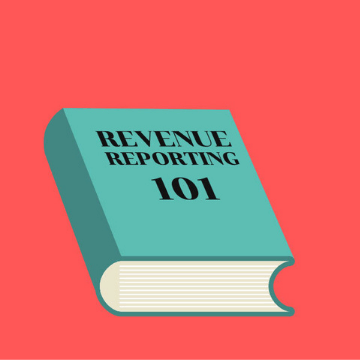
Do you know if your company is making a profit?
If you are like most new tour operators, you are probably relying on bank balance reporting. When there is money in your bank account, it is going well. But that’s not the best way to run a business.
Keeping track of your financial health, including revenue allocation and profit, is an essential part of running a profitable tour business. Your company should be pulling essential accounting reports like your Profit & Loss Statement on a consistent basis so that you’re always aware of their financial standing.
This information helps you make better hiring decisions and figure out how to best price your tours and experiences.
In this post, we’re diving into revenue reporting, including why it matters and the most important financial metrics you should be tracking.
What is revenue reporting?
Revenue reporting refers to the process of tracking your revenue and profit numbers in a given accounting period. Revenue reports help tour businesses and attractions keep track of essential revenue metrics like sales, profit, and cash flow.
The three most common revenue-based reports for tour businesses and attractions are:
- Profit and Loss Statement (P&L Statement)
- Balance Sheet Report
- Cash Flow Statement
Each can provide your business with essential financial information.
The P&L Statement, for instance, breaks down your company’s revenue and expenses. This report helps business owners gauge how profitable their tour business is at any given time.
Tour businesses should also consistently monitor their assets and liabilities, or what you own vs. what you owe. For that, you’d look at your Balance Sheet.
The third most common report is the Cash Flow Statement, which gives you a detailed snapshot of all the money coming in and all the money going out. For tours and attractions, it’s also a good idea to look at realized earnings when pulling a Cash Flow Statement.
While the Cash Flow Statement will show you the money coming in and out of your business on the day a booking was made, your realized earnings happen once the tour or experience is complete.
There is likely going to be a lag in between cash flow and realized earnings. It’s important to track both of these reports, especially when it comes to refunds or chargebacks, or else you can find yourself in an uncomfortable cash crunch.
Gross revenue vs. net revenue vs. net profit: What’s the difference?
First, let’s look at the difference between revenue and profit.
Revenue is the total income generated from all of your sales, while profit is the amount that remains after deducting your business expenses.
While both revenue and profit are important to track, profit gives your company a more accurate picture of its financial standing.
Now let’s define the difference between Gross Revenue, Net Revenue, and Net Profit.
- Gross Revenue: Also known as gross sales, your gross revenue includes all the income you make from a ticket sale or booking. It does not exclude any expenditures or costs of doing business. It reports the money earned from the sale or booking itself.
- Net Revenue: Also known as net sales, your net revenue takes expenses and the cost of goods sold into account. The Net Revenue is what’s left after subtracting these costs from Gross Revenue.
- Net Profit: Your Net Profit is the amount of money your company makes after all of its expenses are paid.
4 revenue-related metrics you should know
The following four metrics can paint a complete picture of your company’s financial performance.
- Earnings: Your earnings refer to your company’s profits over a given period of time. Net earnings show the total earnings your company has achieved after subtracting all of your operating expenses.
For example, if your bike tour company made $100,000 in revenue last year, it would need to subtract all of its total expenses to see exactly how much your company has profited.
- Profit: The term profit is usually associated with three important financial metrics on your P&L Statement: gross profit, operating profit, and net profit. Overall, profit is the amount of income that remains after accounting for all expenses, debts, and operating costs.
For example, if your escape room made $300,000 in revenue last year, and it costs $100,000 to run it, then your profit would be $200,000.
- Revenue: Your revenue is the total amount of income your company generates through ticket sales or tour bookings, as well as any other services related to your primary operations. Revenue doesn’t deduct any costs or expenses associated with operating your business.
For example, a kayaking tour company’s revenue is the total amount of money earned from its tour bookings before deducting expenses.
- Cash Flow: Cash flow is a report of all the money that comes in and out of your company. If you received five bookings today at $50 each, your Cash Flow Statement will show you that there was a $250 inflow of cash for your company.
***
These are the revenue metrics your company should be tracking on a weekly, monthly, and quarterly basis. Keeping an eye on your revenue and profit will allow you to make smart decisions about tour pricing, hiring, and marketing campaigns.
A booking software like Xola gives you access to all of these revenue reports and more — making it easy to manage your bookings and finances all in one place.





